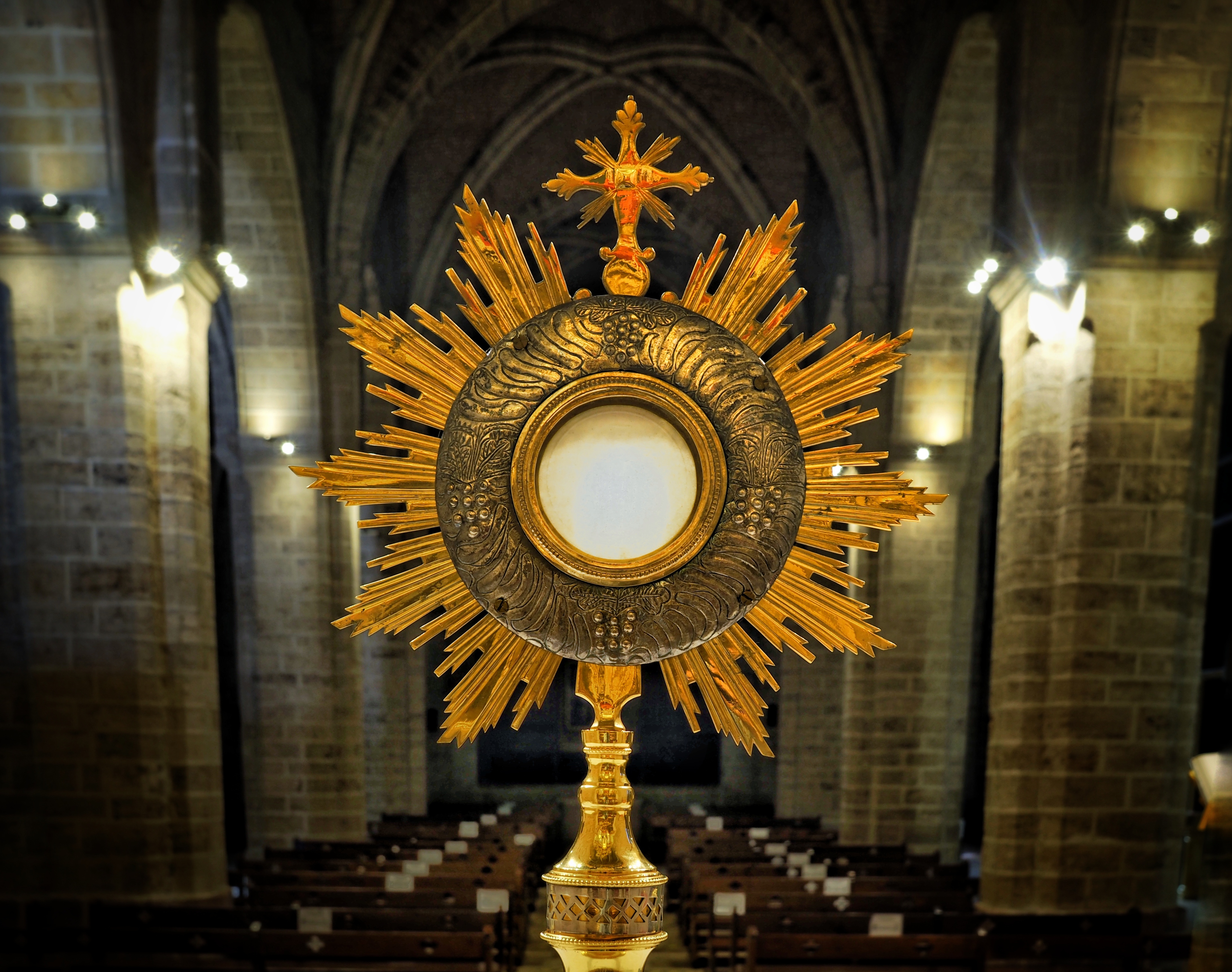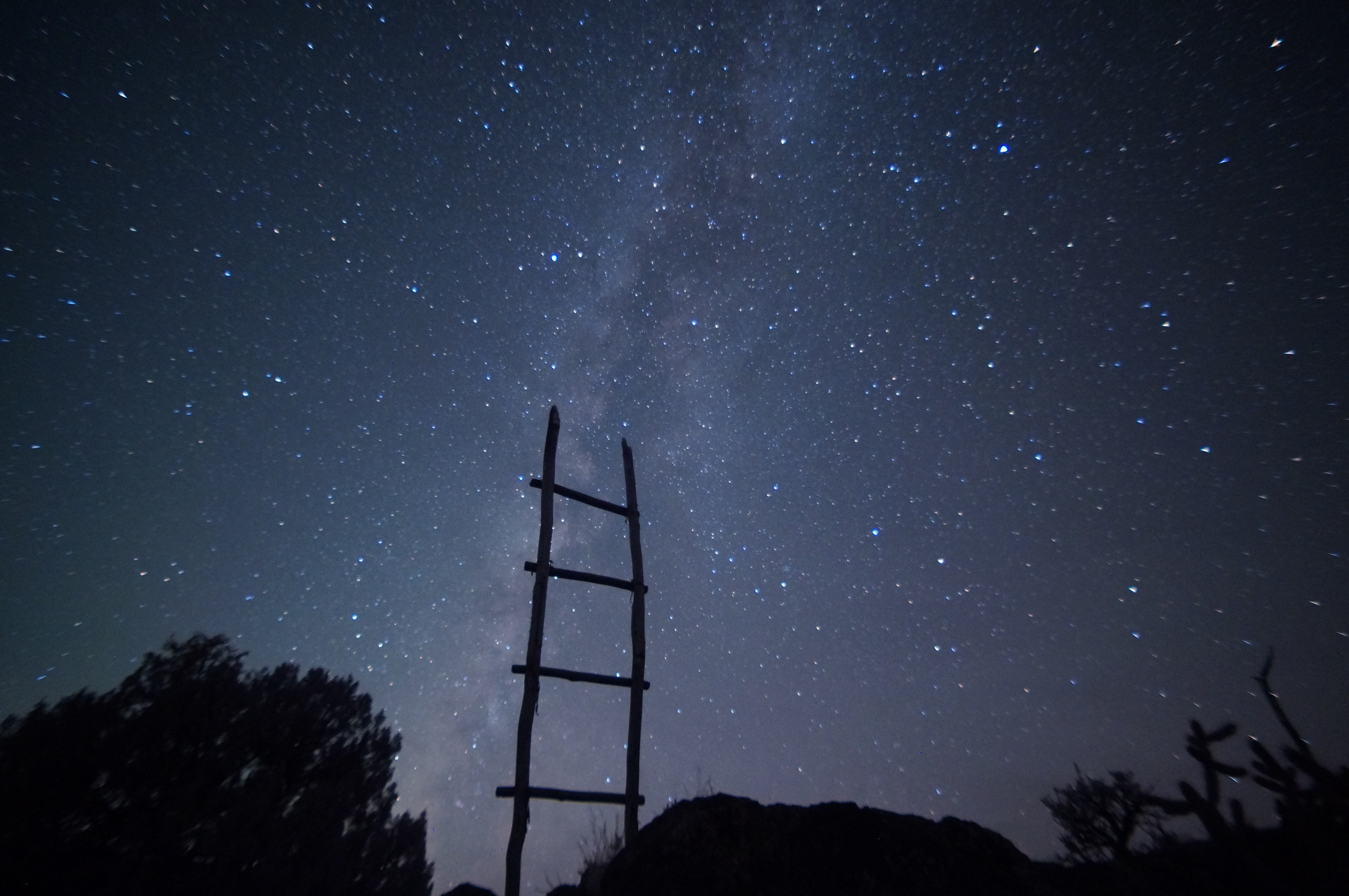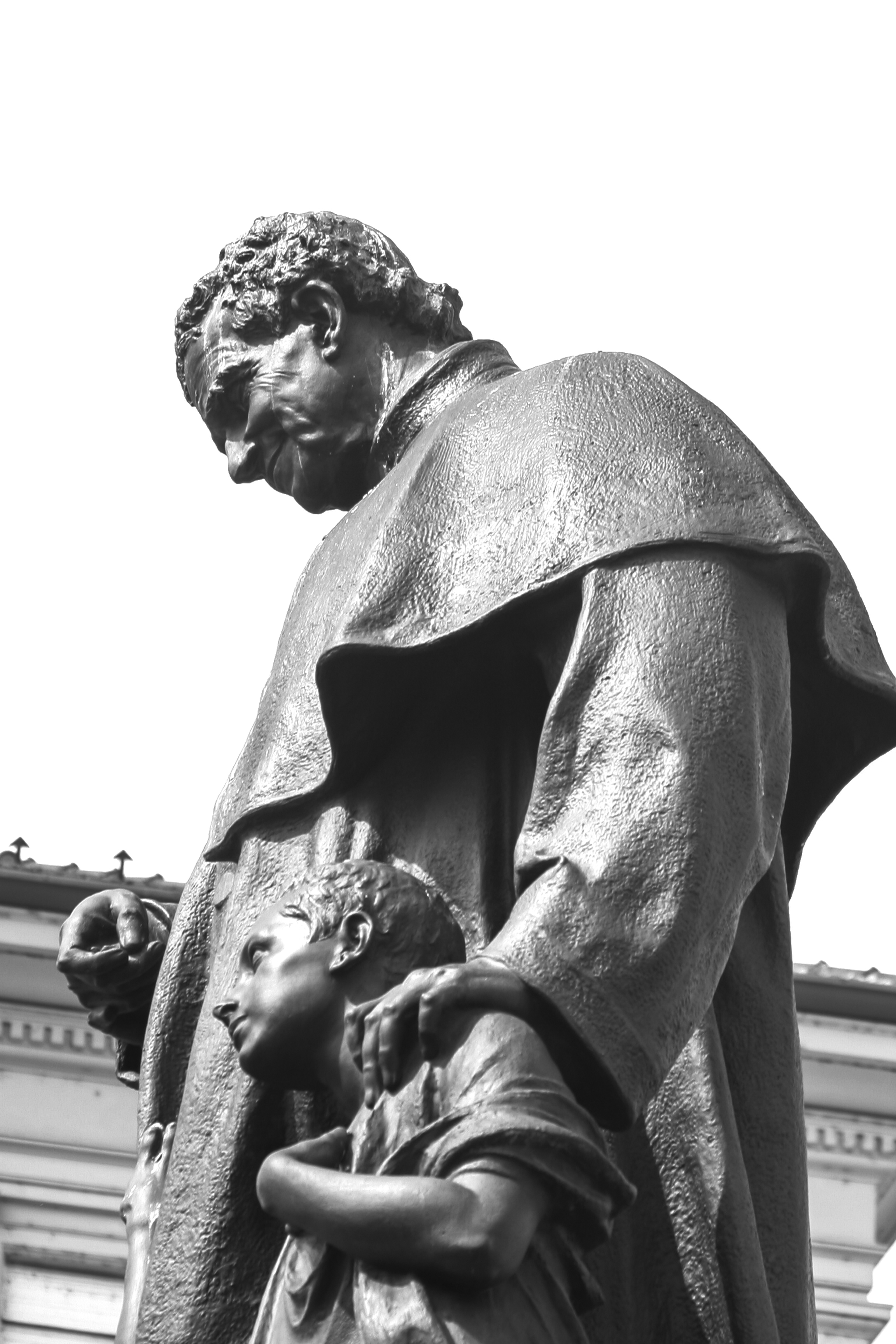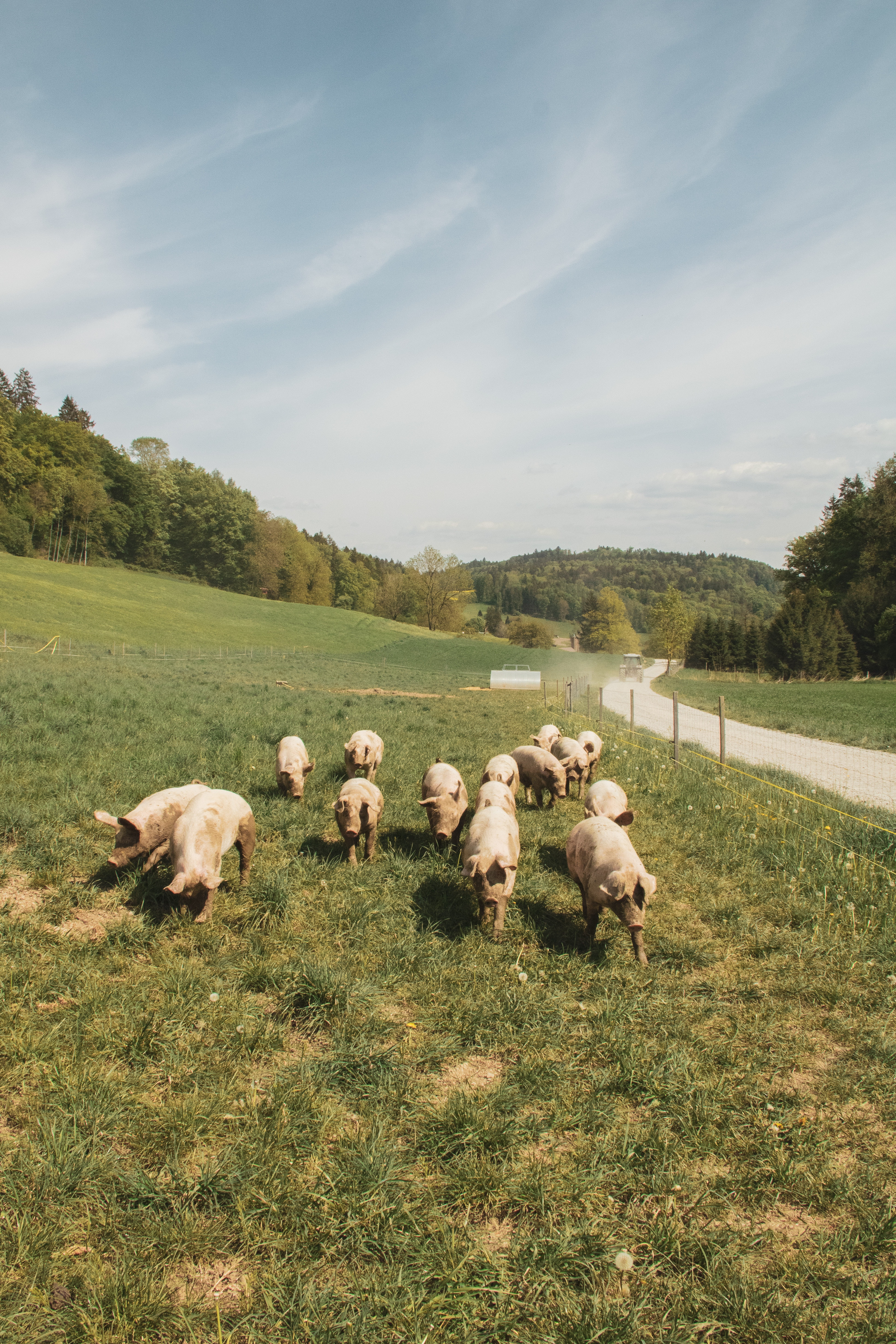Sometimes I get so excited about the readings. It’s silly because I’ve heard most, if not all, of them before, but there’s something about how the readings are always exactly what you need, when you need it. Today’s reading is no different.
There is one thing that stuck out to me the most from today’s First Reading:
- God created.
Again, I feel so silly stating the obvious as a giant epiphany, but it really was an epiphany for me today!
Nearly every Christian knows the biblical story of creation. God said “Let there be light” and BOOM, there was light. It just gets even better from there. He creates day and night. He creates water and the sky. He creates soil and plants. He creates the sun and the moon. He creates the stars and the seasons. Again, that’s just the beginning! As if it wasn’t enough that He created all this beauty, he goes on to create animals and man (us!).
I’ve traveled a good amount and I am always in awe of how much beauty there is in the natural world. Have you ever been on a mountaintop and been above the clouds? Have you ever seen a life-filled canyon that seems to go on for miles? Have you ever seen the northern lights? The northern lights literally move me to tears, and I’ve only seen them in videos!
There is so much beauty in this world that God created for us and sometimes I forget about it. I don’t take walks as often as I should. I don’t spend much time getting lost in the beauty of watching a plant grow a new leaf and sprout up. I don’t revel in the fact that the sun came up today with beautiful colors and then went down with a whole different view of splendor.
Today, let’s just thank the Lord for all He has created for us. Let’s give Him gratitude for giving us another day and a ground to walk on. Let’s praise Him for giving us animals to watch and pets to love. Let’s look at our favorite humans, or even ourselves in the mirror, and be amazed by the creation of man. We breathe without thinking. Our hearts know just what to do and when they don’t… we have other humans to thank for the gift of technologies that allow us to spend more time on this beautiful earth. And when it’s our time to go to our heavenly home… Thank the Lord for all He gave us on earth… because it’s only the beginning.
A veces me emociono mucho con las lecturas. Es un poco chistoso porque he escuchado la mayoría, si no todos, de ellos antes, pero hay algo acerca de cómo las lecturas siempre son exactamente lo que necesito, cuando lo necesito. La lectura de hoy no es nada diferente.
Hay una cosa que me llamó más la atención de la primera lectura de hoy: Dios creó.
Nuevamente, me siento un poco chistosa al decir lo obvio como una gran epifanía, ¡pero realmente fue una epifanía para mí hoy!
Casi todos los cristianos conocen la historia bíblica de la creación. Dios dijo “Que exista la luz” y BOOM, hubo luz. Y de ahí se pone aún mejor. Crea el día y la noche. Crea el agua y el cielo. Crea la tierra y las plantas. Crea el sol y la luna. Crea las estrellas y las estaciones. Nuevamente, ¡eso es solo el comienzo! Como si no fuera suficiente que creyera toda esta belleza, continúa creando a los animales y el hombre (¡nosotros!).
He viajado mucho y siempre me asombra la cantidad de belleza que hay en el mundo natural. ¿Alguna vez has estado en la cima de una montaña y has estado por encima de las nubes? ¿Alguna vez has visto un cañón lleno de vida que parece extenderse por millas? ¿Alguna vez has visto la aurora boreal? Las auroras boreales literalmente me conmueven hasta las lágrimas, ¡y solo las he visto en videos!
Hay tanta belleza en este mundo que Dios creó para nosotros y a veces me olvido de eso. No salgo a caminar tan a menudo como debería. No paso mucho tiempo perdiéndome en la belleza de ver a una planta desarrollar una nueva hoja y brotar. No me deleito en el hecho de que el sol salió hoy con hermosos colores y luego se puso con una vista completamente diferente de esplendor.
Hoy, demos gracias al Señor por todo lo que ha creado para nosotros. Démosle gracias por darnos otro día y un terreno para caminar. Alabemos a Dios por darnos animales para cuidar y mascotas para amar. Miremos a nuestros seres queridos favoritos, o incluso a nosotros mismos en el espejo para sorprendernos con la creación del hombre. Respiramos sin pensar. Nuestros corazones saben exactamente qué hacer y cuándo no… gracias a Dios tenemos a otros seres humanos que nos han regalado las tecnologías que nos permiten pasar más tiempo en esta hermosa tierra. Y cuando sea nuestro tiempo de ir a nuestro hogar celestial… Gracias al Señor por todo lo que nos dio en la tierra… porque es solo el comienzo.
Image Credit: Visit Greenland, www.pexels.com/photo/aurora-borealis-360912/
 Veronica Alvarado is a born and raised Texan currently living in Pennsylvania. Since graduating from Texas A&M University, Veronica has published various Catholic articles in bulletins, newspapers, e-newsletters, and blogs. She continued sharing her faith after graduation as a web content strategist and digital project manager. Today, she continues this mission in her current role as communications director and project manager for Pentecost Today USA, a Catholic Charismatic Renewal organization in Pittsburgh.
Veronica Alvarado is a born and raised Texan currently living in Pennsylvania. Since graduating from Texas A&M University, Veronica has published various Catholic articles in bulletins, newspapers, e-newsletters, and blogs. She continued sharing her faith after graduation as a web content strategist and digital project manager. Today, she continues this mission in her current role as communications director and project manager for Pentecost Today USA, a Catholic Charismatic Renewal organization in Pittsburgh.




 Allison Gingras (
Allison Gingras ( 
 Sheryl is happy to be the number 1 cheerleader and supporter for her husband, Tom who is a candidate for the Permanent Diaconate in the Diocese of Kalamazoo. They are so grateful for the opportunity to grow together in this process. Sheryl’s day job is serving her community as the principal for St. Therese Catholic School in Wayland, Michigan. Since every time she thinks she gets life all figured out, she realizes just how far she has to go, St. Rita of Cascia is her go-to Saint for intercession and help. Home includes Carlyn, a very, very goofy Golden Retriever and Lucy, our not-so-little rescue puppy.
Sheryl is happy to be the number 1 cheerleader and supporter for her husband, Tom who is a candidate for the Permanent Diaconate in the Diocese of Kalamazoo. They are so grateful for the opportunity to grow together in this process. Sheryl’s day job is serving her community as the principal for St. Therese Catholic School in Wayland, Michigan. Since every time she thinks she gets life all figured out, she realizes just how far she has to go, St. Rita of Cascia is her go-to Saint for intercession and help. Home includes Carlyn, a very, very goofy Golden Retriever and Lucy, our not-so-little rescue puppy. 
 Kathryn Mulderink, MA, is married to Robert, Station Manager for Holy Family Radio. Together they have seven children (including Father Rob), and seven grandchildren. She is President of the local community of Secular Discalced Carmelites and has published five books and many articles. Over the last 30 years, she has worked as a teacher, headmistress, catechist, Pastoral Associate, and DRE, and as a writer and voice talent for Catholic Radio. Currently, she serves the Church by writing and speaking, and by collaborating with various parishes and to lead others to encounter Christ and engage their faith. Her website is
Kathryn Mulderink, MA, is married to Robert, Station Manager for Holy Family Radio. Together they have seven children (including Father Rob), and seven grandchildren. She is President of the local community of Secular Discalced Carmelites and has published five books and many articles. Over the last 30 years, she has worked as a teacher, headmistress, catechist, Pastoral Associate, and DRE, and as a writer and voice talent for Catholic Radio. Currently, she serves the Church by writing and speaking, and by collaborating with various parishes and to lead others to encounter Christ and engage their faith. Her website is 


 Leslie Sholly is a Catholic, Southern wife and mother of five, living in her hometown, Knoxville, Tennessee. She graduated from Georgetown University with an English major and Theology minor. She blogs at
Leslie Sholly is a Catholic, Southern wife and mother of five, living in her hometown, Knoxville, Tennessee. She graduated from Georgetown University with an English major and Theology minor. She blogs at 
 Kate Taliaferro is an Air Force wife and mother. She is blessed to be able to homeschool, bake bread and fold endless piles of laundry. When not planning a school day, writing a blog post or cooking pasta, Kate can be found curled up with a book or working with some kind of fiber craft. Kate blogs at
Kate Taliaferro is an Air Force wife and mother. She is blessed to be able to homeschool, bake bread and fold endless piles of laundry. When not planning a school day, writing a blog post or cooking pasta, Kate can be found curled up with a book or working with some kind of fiber craft. Kate blogs at 
 Arthur Richardson is married to his wonderful wife, Gabby Richardson. Most of his work experience is in ministry. He was a retreat missionary in Wisconsin for two years and a youth minister for three years. He is now the Web Project Manager here at Diocesan, and loves it!
Arthur Richardson is married to his wonderful wife, Gabby Richardson. Most of his work experience is in ministry. He was a retreat missionary in Wisconsin for two years and a youth minister for three years. He is now the Web Project Manager here at Diocesan, and loves it!
 Dakota lives in Denver, CO with her husband, Ralph, and their two sons, Alfie & Theophilus. She is the Dean of Enrollment Management for Bishop Machebeuf High School where her husband also teaches. You can find Dakota at the zoo or a brewery with her family or with her nose in a book at home. For more of Dakota’s writing check out
Dakota lives in Denver, CO with her husband, Ralph, and their two sons, Alfie & Theophilus. She is the Dean of Enrollment Management for Bishop Machebeuf High School where her husband also teaches. You can find Dakota at the zoo or a brewery with her family or with her nose in a book at home. For more of Dakota’s writing check out 
 Deacon Dan Schneider is a retired general manager of industrial distributors. He and his wife Vicki have been married for over 50 years. They are the parents of eight children and thirty grandchildren. He has a degree in Family Life Education from Spring Arbor University. He was ordained a Permanent Deacon in 2002. He has a passion for working with engaged and married couples and his main ministry has been preparing couples for marriage.
Deacon Dan Schneider is a retired general manager of industrial distributors. He and his wife Vicki have been married for over 50 years. They are the parents of eight children and thirty grandchildren. He has a degree in Family Life Education from Spring Arbor University. He was ordained a Permanent Deacon in 2002. He has a passion for working with engaged and married couples and his main ministry has been preparing couples for marriage.
 David Dashiell is a freelance author and editor in Nashville, Tennessee. He has a master’s degree in theology from Franciscan University, and is the editor of the anthology
David Dashiell is a freelance author and editor in Nashville, Tennessee. He has a master’s degree in theology from Franciscan University, and is the editor of the anthology